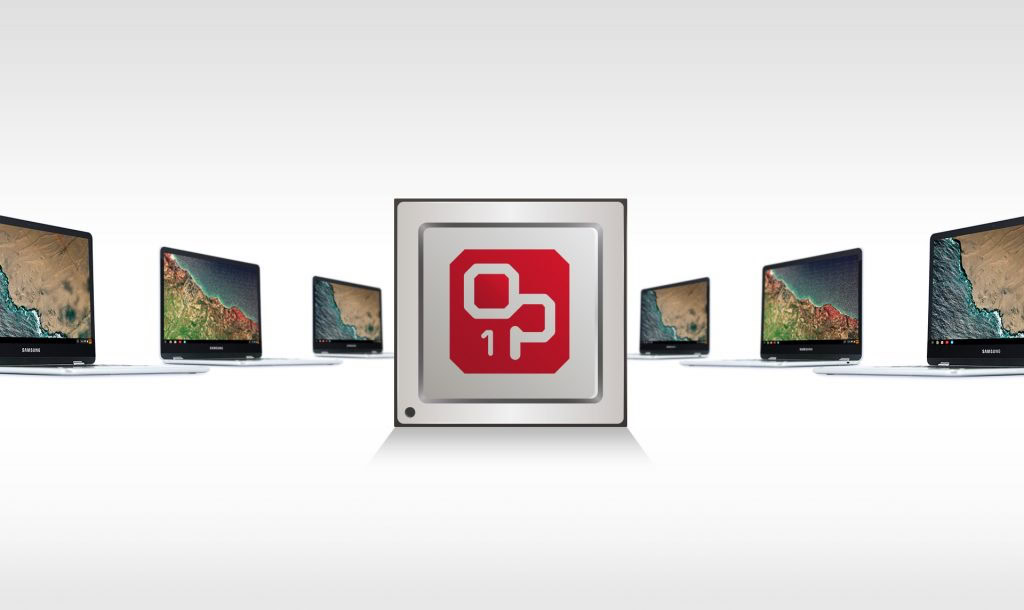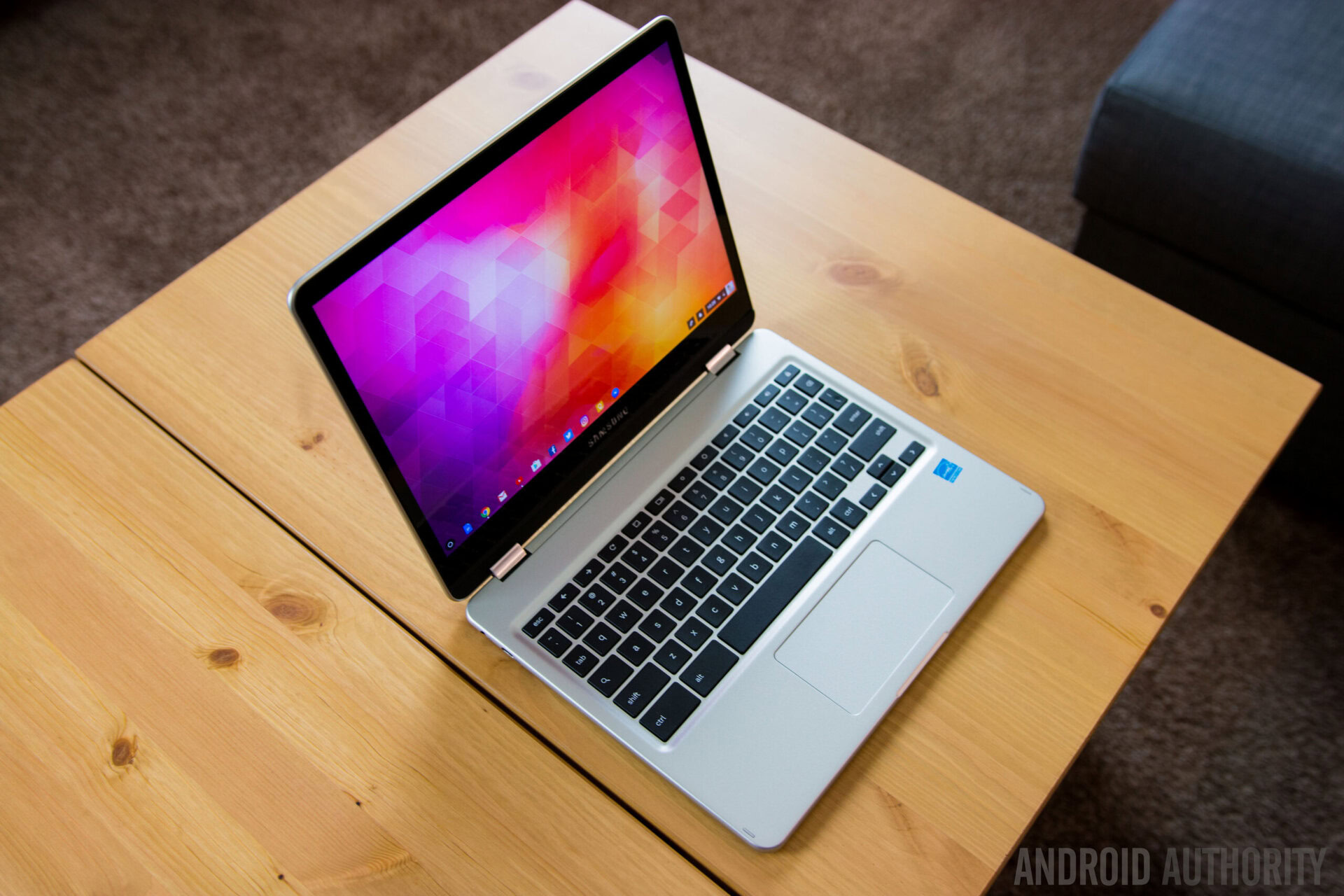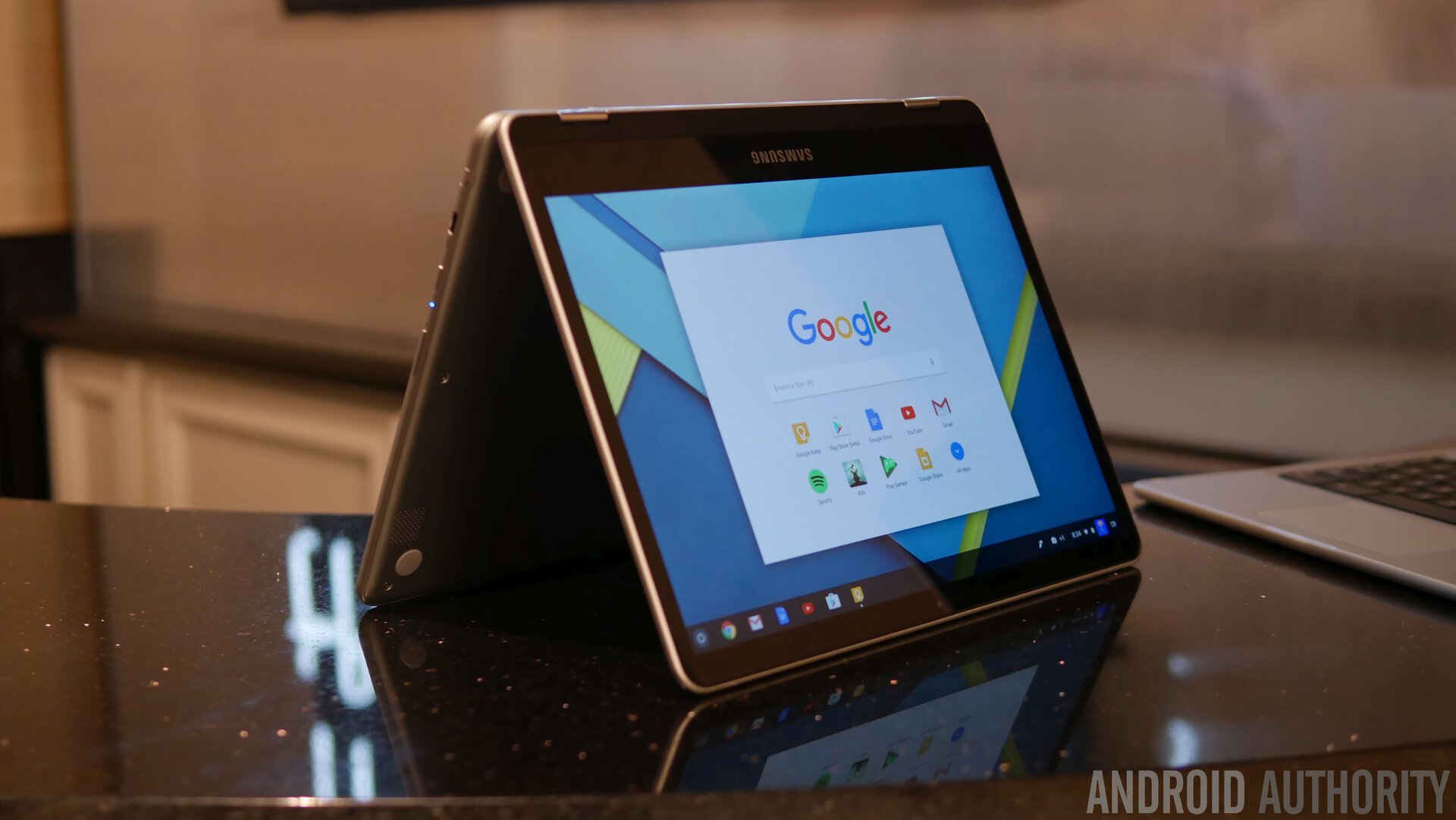Affiliate links on Android Authority may earn us a commission. Learn more.
Google is dabbling in Chromebook hardware with the OP1 SoC

We quite liked Samsung’s Chromebook Plus and Pro when we went hands-on with them a couple of weeks ago. One of the most interesting aspects of the new Chromebook range is the processing options between the Plus and Pro models, which feature different ARM and Intel processors respectively.
The former hands in a solid performance, despite ARM’s more energy efficient and less powerful CPU architecture when compared with Intel’s Core M3. More mysteriously, those reading into the Chromebook Plus’ spec sheet will have noticed that this processor is listed as an unbranded “OP1, Made for Chromebooks, Hexa-core” SoC. While the 2x Cortex-A72 and 4x Cortex-A53 CPU configuration isn’t anything too strange, many were wondering who was producing this chip.
It turns out that the OP1 was developed by Rockchip, but the brand name is owned by Google.
Some sleuthing by The Verge reveals that the OP1 was developed by Rockchip, a company with plenty of experience designing ARM based chips. Perhaps more importantly, the OP branding is owned by Google, but both of the companies’ involvement is quite hard to track down. OP is a trademark owned by Google, but there’s no branding from either of the two partners anywhere near the SoC. Even the rather official looking whatisop.com website is registered anonymously.

So what is this OP shenanigans all about? Based on the information on whatisop, it appears that the OP1, and presumably the OP2, OP3 and others that may follow, are SoCs that have been certified by or designed in collaboration with Google to be specifically optimized for Chrome OS. The page states that OP SoCs set “the new standard for mobile experiences.” It goes on to mention that OP powered Chromebooks run Android apps “faster, smoother”, support fast WiFi browsing, 4K video decoding in hardware, various USB Type-C functions, and offer all day battery life. This isn’t just about CPU performance, Google already assists all Chromebook manufacturers with optimizations in that regard, but about ensuring a consistent consumer experience across a range of essential components.
In other words, Google appears to be getting more involved in elements of Chromebook hardware design. The idea is presumably to ensure a high bar for performance and hardware reliability in Chromebooks built around low power ARM SoCs. That being said, we don’t know exactly what Google looks for or how, if at all, involved the company is with the design of OP SoCs. It might just be a “certificate” awarded to chips that meet certain metrics.
Google appears to be getting more involved in elements of hardware design and optimization for Chromebooks. This could result in better performance, and not just in terms of processing grunt.
Interestingly, Google has confirmed that participation in the OP program is completely optional. If Google is happy with the SoC, both the Chromebook manufacturer and the chip maker can make a shared decision about how to proceed, without any money changing hands.

Given that Google has been so secretive about the OP project, the company is still likely developing exactly how it intends to use it. Still, we can probably expect a few more devices featuring OP processors in the near future, providing that manufacturers climb aboard. If this results in better performance and even more reliable Chromebooks, then it seems like a win-win.